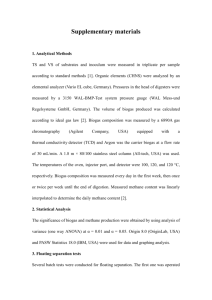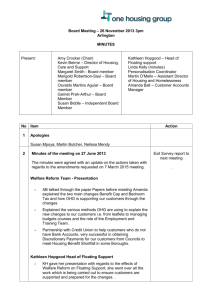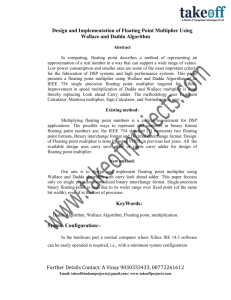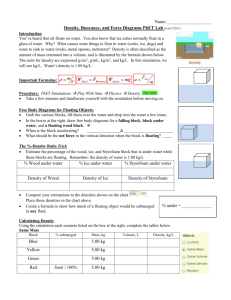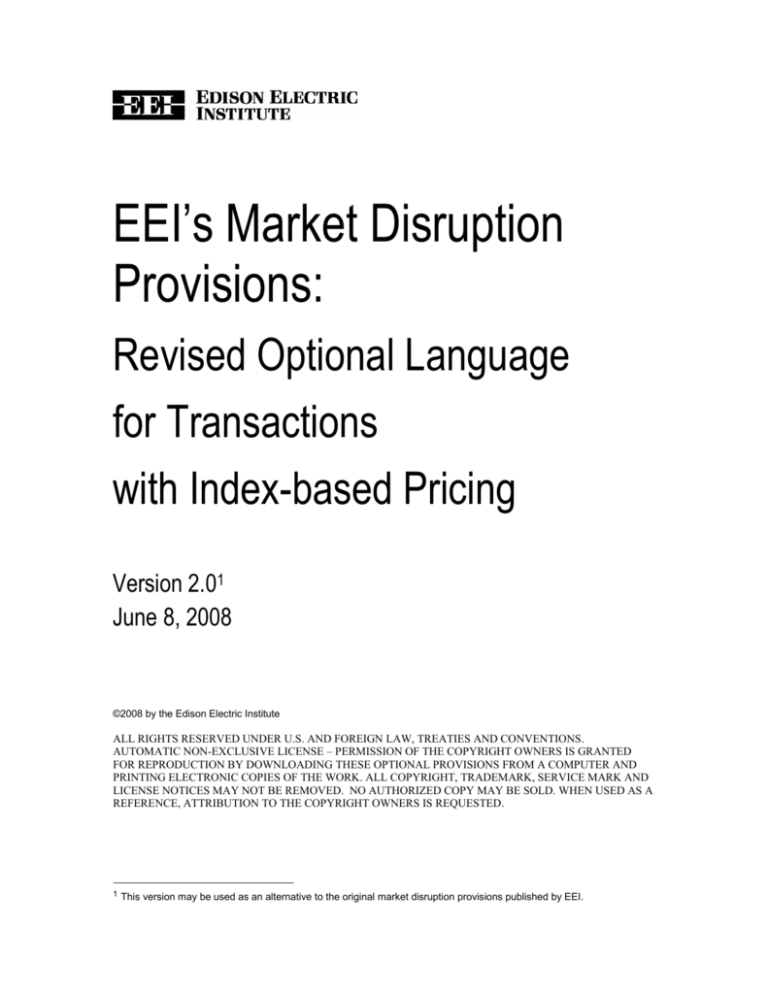
EEI’s Market Disruption
Provisions:
Revised Optional Language
for Transactions
with Index-based Pricing
Version 2.01
June 8, 2008
©2008 by the Edison Electric Institute
ALL RIGHTS RESERVED UNDER U.S. AND FOREIGN LAW, TREATIES AND CONVENTIONS.
AUTOMATIC NON-EXCLUSIVE LICENSE – PERMISSION OF THE COPYRIGHT OWNERS IS GRANTED
FOR REPRODUCTION BY DOWNLOADING THESE OPTIONAL PROVISIONS FROM A COMPUTER AND
PRINTING ELECTRONIC COPIES OF THE WORK. ALL COPYRIGHT, TRADEMARK, SERVICE MARK AND
LICENSE NOTICES MAY NOT BE REMOVED. NO AUTHORIZED COPY MAY BE SOLD. WHEN USED AS A
REFERENCE, ATTRIBUTION TO THE COPYRIGHT OWNERS IS REQUESTED.
1
This version may be used as an alternative to the original market disruption provisions published by EEI.
Revised Optional Language for Transactions with Index-based Pricing
The language set forth below may be appropriate for inclusion under the "Other Changes”
section of the Cover Sheet if Transactions with index-based pricing are envisioned, and the
Parties desire to provide for an alternative basis for determining the Contract Price should
the relevant index be substantially altered, disrupted or no longer published.
Index Transactions. If the Contract Price for a Transaction is determined by reference to a
Price Source, then:
(a)
Market Disruption. If a Market Disruption Event occurs on any one or more days
during a Determination Period (each day, a “Disrupted Day”), then:
The fallback Floating Price, if any, specified by the Parties in the
relevant Confirmation shall be the Floating Price for each Disrupted
Day.
If the Parties have not specified a fallback Floating Price, then the
Parties will endeavor, in good faith and using commercially reasonable
efforts, to agree on a substitute Floating Price, taking into consideration,
without limitation, guidance, protocols or other recommendations or
conventions issued or employed by trade organizations or industry
groups in response to the Market Disruption Event and other prices
published by the Price Source or alternative price sources with respect to
the Delivery Point or comparable Delivery Points that may permit the
Parties to derive the Floating Price based on historical differentials.
If the Price Source retrospectively issues a Floating Price in respect of a
Disrupted Day (a “Delayed Floating Price”) before the parties agree on a
substitute Floating Price for such day, then the Delayed Floating Price
shall be the Floating Price for such Disrupted Day. If a Delayed Price is
issued by the Price Source in respect of a Disrupted Day after the Parties
agree on a substitute Floating Price for such day, the substitute Floating
Price agreed upon by the Parties will remain the Floating Price without
adjustment unless the Parties expressly agree otherwise.
If the Parties cannot agree on a substitute Floating Price and the Price
Source does not retrospectively publish or announce a Floating Price, in
each case, on or before the fifth Business Day following the first Trading
Day on which the Market Disruption Event first occurred or existed,
then the Floating Price for each Disrupted Day shall be determined by
taking the arithmetic mean of quotations requested from four leading
dealers in the relevant market that are unaffiliated with either Party and
mutually agreed upon by the Parties (“Specified Dealers”), without
regard to the quotations with the highest and lowest values, subject to
the following qualifications:
o If exactly three quotations are obtained, the Floating Price for
each such Disrupted Day will be the quotation that remains after
disregarding the quotations having the highest and lowest values.
1
o If fewer than three quotations are obtained, the Floating Price for
each such Disrupted Day will be the average of the quotations
obtained.
o If the Parties cannot agree upon four Specified Dealers, then each
of the Parties will, acting in good faith and in a commercially
reasonable manner, select up to two Specified Dealers separately,
and those selected dealers shall be the Specified Dealers.
Unless otherwise agreed, if at any time the Parties agree on a substitute
Floating Price for any Disrupted Day, then such substitute Floating Price
shall be the Floating Price for such Disrupted Day, notwithstanding the
subsequent publication or announcement of a Delayed Floating Price by
the relevant Price Source or any quotations obtained from Specified
Dealers.
"Determination Period" means each calendar month a part or all of which is within
the Delivery Period of a Transaction.
"Exchange" means, in respect of a Transaction, the exchange or principal trading
market specified as applicable to the relevant Transaction.
"Floating Price" means a Contract Price specified in a Transaction that is based
upon a Price Source.
"Market Disruption Event" means, with respect to any Price Source, any of the
following events:
(a) the failure of the Price Source to announce, publish or make available the
specified Floating Price or information necessary for determining the
Floating Price for a particular day;
(b) the failure of trading to commence on a particular day or the permanent
discontinuation or material suspension of trading in the relevant options
contract or commodity on the Exchange, RTO or in the market specified for
determining a Floating Price;
(c) the temporary or permanent discontinuance or unavailability of the Price
Source;
(d) the temporary or permanent closing of any Exchange or RTO specified
for determining a Floating Price; or
(e) a material change in the formula for or the method of determining the
Floating Price by the Price Source or a material change in the composition
of the Product.
"Price Source" means, in respect of a Transaction, a publication or such other origin
of reference, including an Exchange or RTO, containing or reporting or making
generally available to market participants (including by electronic means) a price,
or prices or information from which a price is determined, as specified in the
relevant Transaction.
“RTO” means any regional transmission operator or independent system operator.
2
“RTO Transaction” means a Transaction in which the Price Source is an RTO.
"Trading Day" means a day in respect of which the relevant Price Source ordinarily
would announce, publish or make available the Floating Price.
(b)
Corrections to Published Prices. If the Floating Price published, announced or
made available on a given day and used or to be used to determine a relevant price
is subsequently corrected by the relevant Price Source (i) within 30 days of the
original publication, announcement or availability, or (ii) in the case of RTO
Transactions only, within such longer time period as is consistent with the RTO’s
procedures and guidelines, then either Party may notify the other Party of that
correction and the amount (if any) that is payable as a result of that correction. If,
not later than thirty (30) days after publication or announcement of that correction,
a Party gives notice that an amount is so payable, the Party that originally either
received or retained such amount will, not later than three (3) Business Days after
such notice is effective, pay, subject to any applicable conditions precedent, to the
other Party that amount, together with interest at the Interest Rate for the period
from and including the day on which payment originally was (or was not) made to
but excluding the day of payment of the refund or payment resulting from that
correction. Notwithstanding the foregoing, corrections shall not be made to any
Floating Prices agreed upon by the Parties or determined based on quotations from
Specified Dealers pursuant to paragraph (a) above unless the Parties expressly agree
otherwise.
(c)
Rounding. [When calculating a Floating Price, all numbers shall be rounded to
[four (4)] decimal places. If the [fifth (5th)] decimal number is five (5) or greater,
then the [fourth (4th)] decimal number shall be increased by one (1), and if the
[fifth (5th)] decimal number is less than five (5), then the [fourth (4th)] decimal
number shall remain unchanged.]2
2
Parties should bilaterally determine the rounding convention they will apply to Transactions that reference
Floating Prices, taking into account their systems requirements and conventions applicable to confirmation
platforms that they may use, as appropriate.
3
PRACTICE NOTES:
MARKET PARTICIPANTS CONSIDERING USE OF THIS OR ANY SIMILAR PROVISION ARE
ENCOURAGED TO CONSULT THEIR OWN LEGAL COUNSEL TO ENSURE THAT THEIR
COMMERCIAL OBJECTIVES WILL BE ACHIEVED AND THEIR LEGAL RIGHTS AND INTERESTS
ADEQUATELY PROTECTED.
IN PARTICULAR, MARKET PARTICIPANTS SHOULD CONSIDER WHETHER THEY MAY HAVE AN
INTEREST IN HARMONIZING THE MARKET DISRUPTION PROVISIONS THAT THEY HAVE
NEGOTIATED IN OTHER AGREEMENTS THAT ARE RELATED TO THE TRANSACTIONS ENTERED
INTO UNDER THE EEI MASTER POWER PURCHASE AND SALE AGREEMENT (E.G.,
TRANSACTIONS ENTERED INTO UNDER AN ISDA MASTER AGREEMENT).
4

